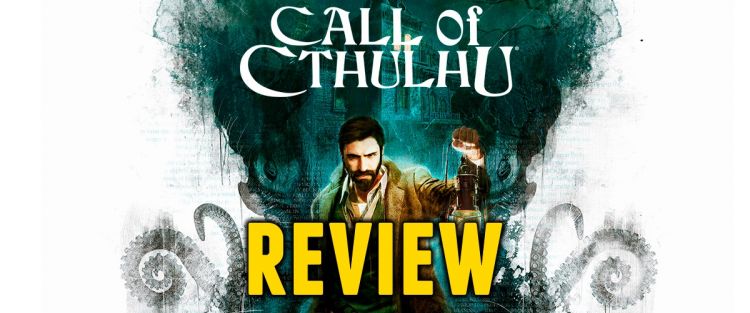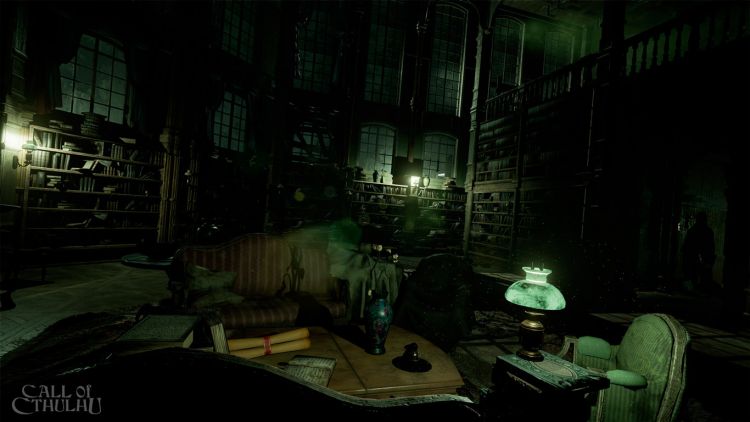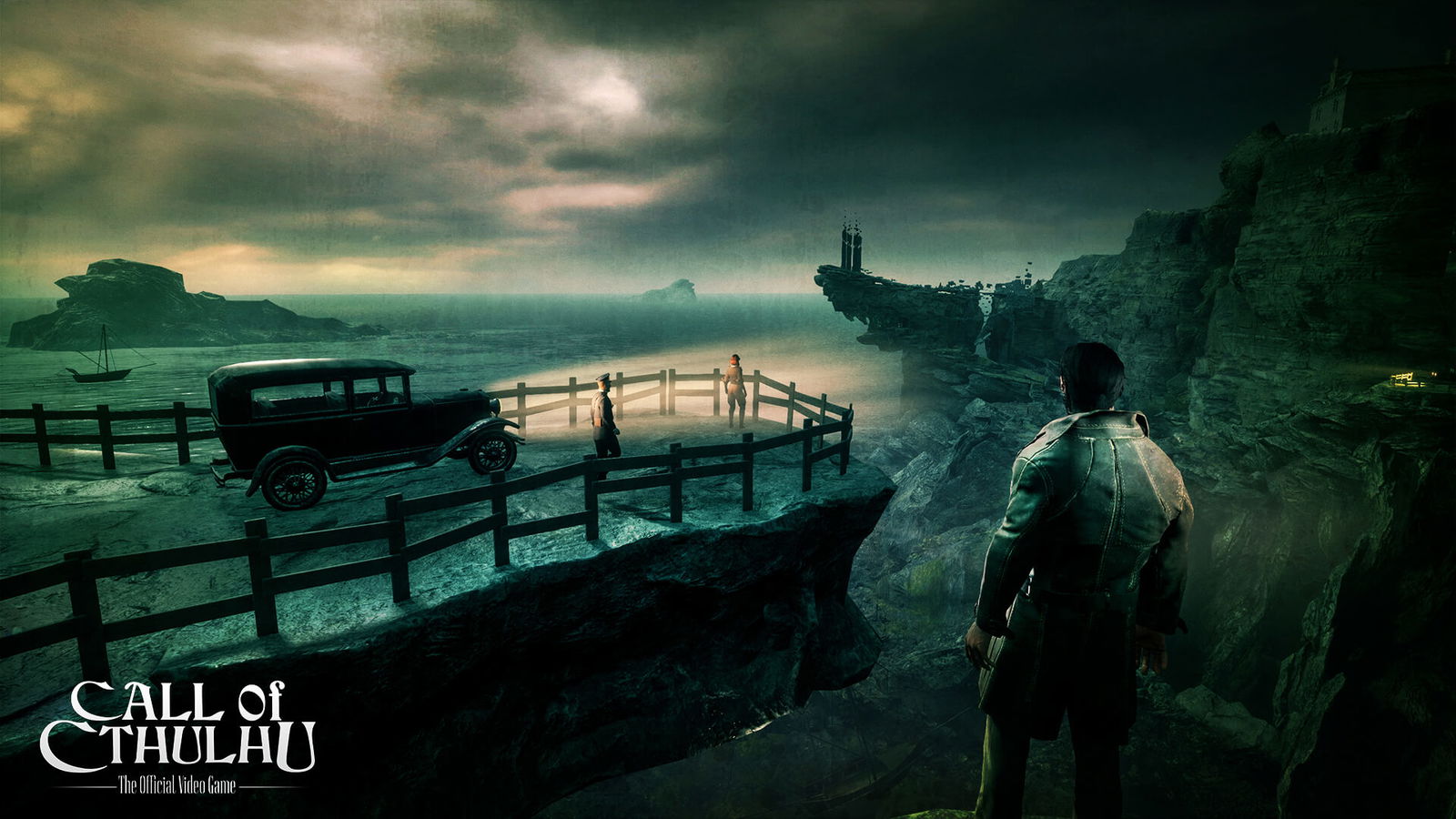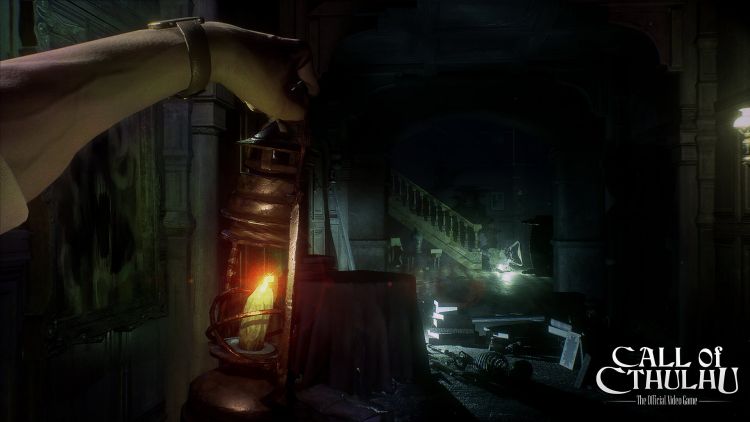I would argue that the works of H.P. Lovecraft and the Cthulhu mythos have been underused in modern video games. Other than a 2005 game loosely based on the author’s short story, The Call of Cthulhu, the video game world has lacked a true adaptation of the tale. It’s worth mentioning that Cyanide’s new game, Call of Cthulhu is technically based on the 1981 role-playing board game of the same name. However, in the transition from story to board game to video game, the latest adaptation still leaves much of the tale intact. Additionally, it references other works by the famed horror author and could conceivably take place in that universe.
Game Name: Call of Cthulhu: The Official Video Game
Platform(s): PlayStation 4 (reviewed), Xbox One, and PC
Publisher(s): Focus Home Interactive
Developer(s): Cyanide
Release Date: October 30th, 2018
Price: $59.99
In this tale, players take on the role of Edward Pierce, a detective in 1924 Boston struggling to find a case that will take him out of his post-WWI rut. He finds that case (and a whole lot more) in the investigation of the death of the Hawkins family. Stephen Webster, the father of artist Sarah Hawkins, brings one of his daughter’s eerie pieces of artwork into Pierce’s office. He claims that the painting hints that her death was due to more than an accident, sending Pierce to the island of Darkwater, Massachusetts.
Arriving on Darkwater, Pierce finds that things are ominous indeed. The locals are distrusting, and the fisherman discovers dead whale that was evidently killed by something a great deal larger than itself. Pierce begins his investigation at the Hawkins Manor, discovering that there is definitely more to this case than meets the eye.
Traversing the fishing hamlet of Darkwater, I’m treated to a nice gothic-sounding soundtrack. Likewise, the sound design of Call of Cthulhu is a treat in general. Townsfolk whisper, waves slap against the shore, and tentacles make wet, suctioning noises. Of course. The graphics throughout the game are a little dated, with the exception being the top-notch cinematic cutscenes. Long load times are sometimes an issue but are mitigated by info-graphics about the ongoing story. Overall the atmosphere of the game is great. The design involves a palette of various shades of green, which even have an in-game explanation in the form of the oil that the town’s lamps burn.
The meat of the gameplay consists of exploring Darkwater and gathering information for the investigation. One nice touch is that examining objects and scenery in the environment can often provide clues that shed light on the mystery. Finding said clues can then unlock extra dialog options when interrogating suspects. I thoroughly enjoyed the branching dialog mechanic of the game. When speaking to characters, dialog wheels appear that allow you to choose one of several options. Throughout the game, acquired skill points may be applied to such qualities as eloquence and psychology, which offer further dialog options. Although it seems straightforward, many role-playing games struggle to find the right balance in their dialog wheels, with either one-word options that hardly convey what you’re trying to say, or long blocks of text that take too long to read. Call of Cthulhu provides succinct yet clear dialog options that allowed me to convey exactly what I wanted to say. Only on one or two occasions did it not provide the questions I wanted to ask, which is pretty impressive.
One of the ways in which you gather clues involves “reconstructing” crime scenes. These segments made me feel most like a detective, as the clues in an environment to trigger flashbacks that shed light on a scene without giving too much away. While the more passive sections of collecting clues provide insight to Pierce, these segments allowed me to figure out the mystery for myself in real time.
Since Call of Cthulhu is based on a role-playing board game, the skill point mechanic is an important one. At the start of the game, it frustrated me, since I didn’t have enough points to really excel at any of the game’s skills. Using these skills you can “test” for a given command or option. For example, if you’re trying to persuade someone, you can test your eloquence on them. Initially, I kept failing these skill checks, although many didn’t seem to have a big impact on the story. It also helps that there are multiple ways of accomplishing goals. Fail to pick a lock on a door and you can try to sweet talk a character into opening it for you.
While the core role-playing features of the gameplay involving making choices and gathering clues are quite entertaining, the other aspects are a mixed bag. Every now and then the game throws in a random stealth sequence, puzzle section, or combat segment. The puzzles are solid, and usually, offer just the right amount of challenge. The stealth and combat aspects are rather bland. As I mentioned, there’s often more than one path to accomplishing a goal, and this is especially rewarding in these circumstances. That being said, I appreciated having occasional gameplay shake-ups, even if they didn’t always hit the mark.
As a role-playing adventure game, all of these gameplay mechanics serve one thing: the story. At the end of the day, the story and how you affect it is what will make or break the experience for you. And luckily a strong story is Call of Cthulhu‘s greatest asset. As you control Edward Pierce, you unravel the mystery of Darkwater and possibly descend into utter madness. Or not. That’s all up to you.
In terms of horror, Call of Cthulhu is one of the creepiest games in recent memory, with some truly chilling moments. I wouldn’t say it’s outright scary and has maybe two jumpscares in the entire game, but that’s not a bad thing. Progressing through the narrative, your choices impact what happens next, with the game warning you that certain choices affect your “destiny.” You may wonder how much your choices actually affect the narrative. Towards the end of the game, the story starts to feel rushed, as decisions impact events much more than any previous choices do. However, there are still multiple endings, and the narrative overall is fascinating, with the mystery slowly unraveling like a spool of thread. The middle bulk of the game is especially well written and really captures the Lovecraftian vibe the game is going for.
For something as arcane as the eldritch gods, Call of Cthulhu is surprisingly accessible. In being able to choose an array of dialog options and invest my skill points as I saw fit, I was able to get the answers I sought and carve my own path through the game almost seamlessly. For example, early on in the game, I found myself at odds with another character due to a misunderstanding. Other games may have forced me to simply live with this, yet I was able to choose my words carefully and right this wrong. Much of the detective work allowed me to piece together the mystery on my own.
In case you were wondering, I kept my own version of Edward Pierce fairly sane, even as the events around me became increasingly surreal. Sanity and Lovecraftian stories don’t usually go hand in hand, but again, I praise Call of Cthulhu for allowing me that freedom. Playing through the story on my own terms, it’s nice to at least have a firm hand on the tiller even as Cthulhu rocks the whole ship.
Call of Cthulhu: The Official Video Game Review
Summary
Call of Cthulhu proves that Lovecraftian horror is still alive, as the role-playing game has players investigate mysterious events on their own terms through an interactive adventure. The story is creepy, unsettling, and fascinating to the point that it sucks you in and pulls you under. Despite some minor gameplay and design hiccups, Call of Cthulhu is an atmospheric mystery game worthy of H.P. Lovecraft himself.
-
Call of Cthulhu: The Official Video Game Review





